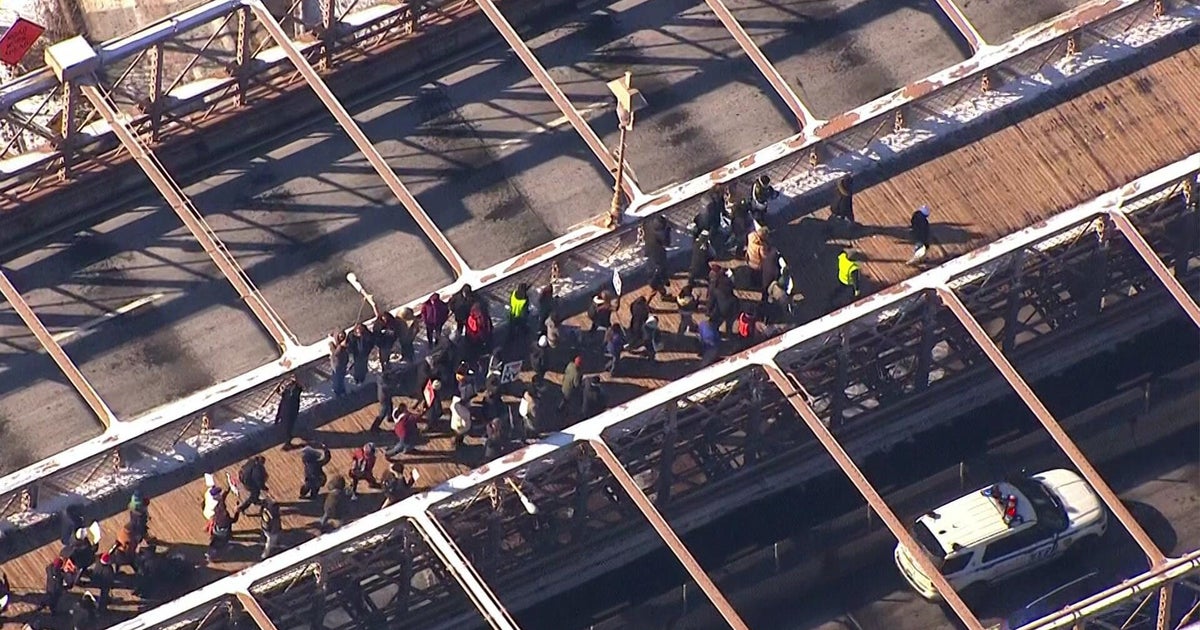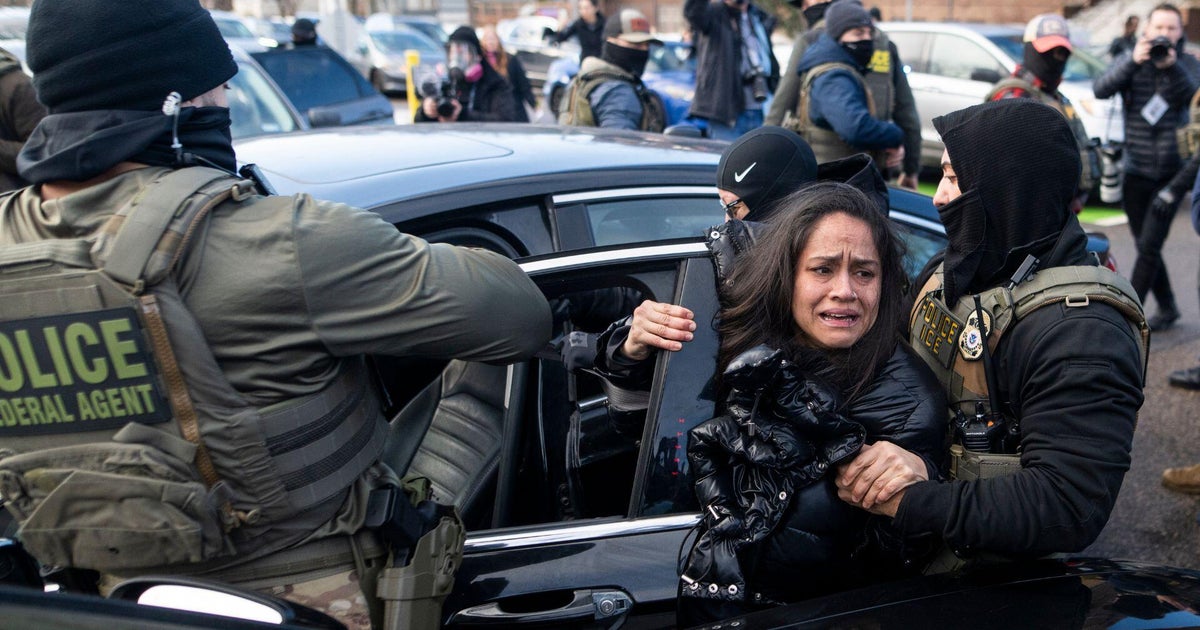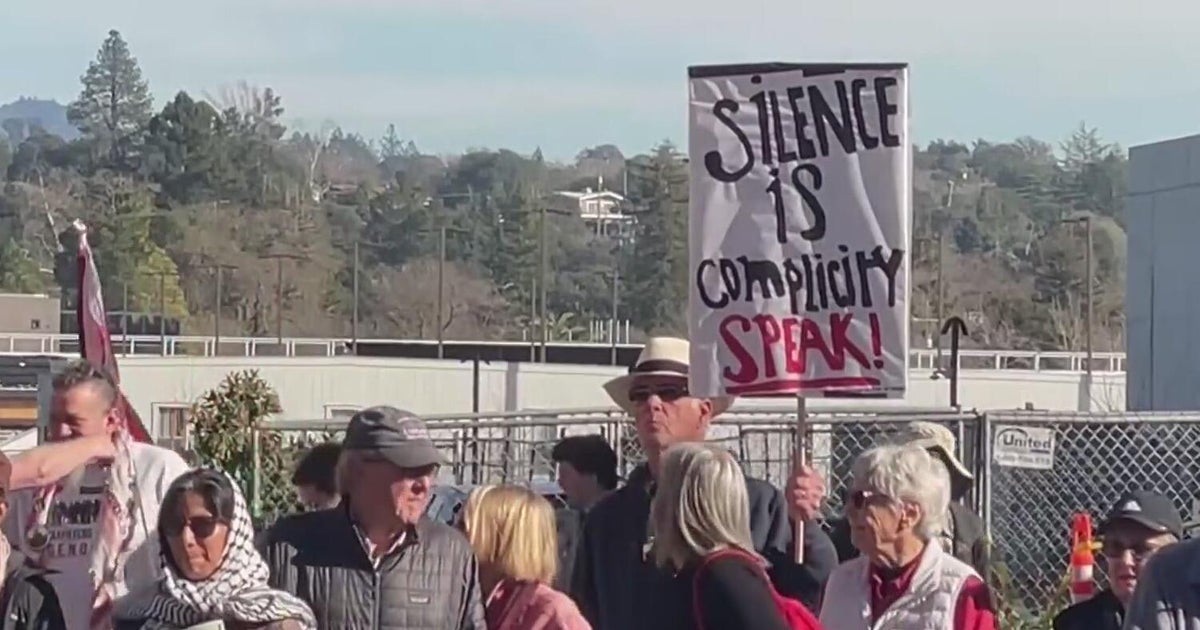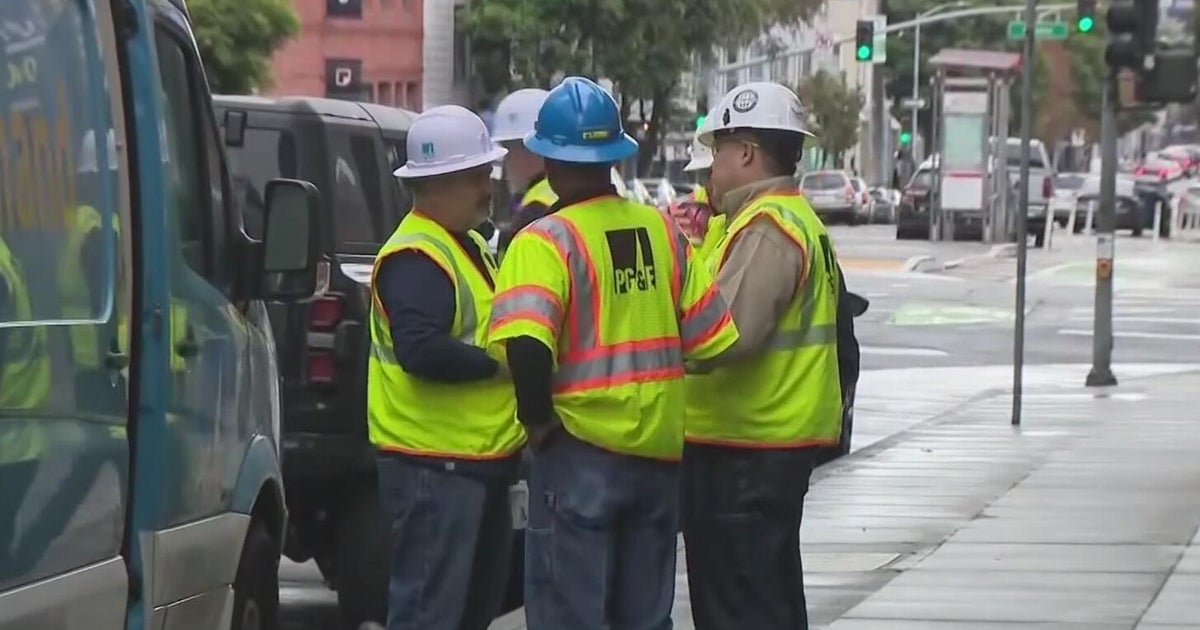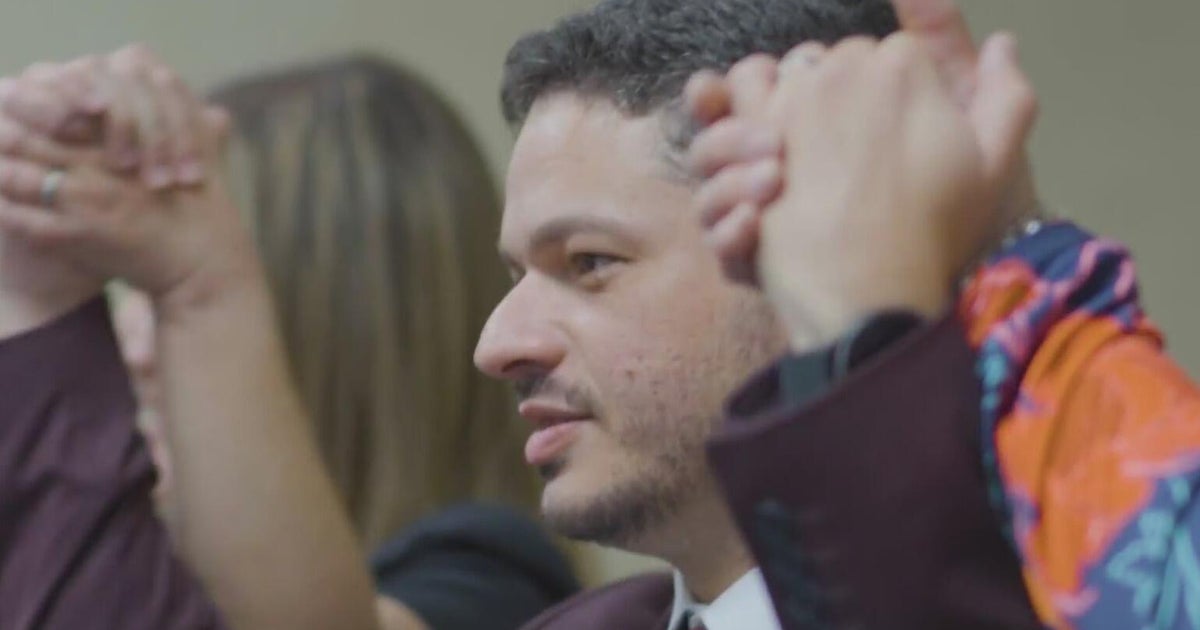Private prison company responds to ICE detention center protests
SAN FRANCISCO - On Thursday morning, protesters gathered in front of San Francisco's U.S. Immigration and Customs Enforcement office to demand an end to what they say is the ongoing abuse of ICE detainees at two detention centers in the state.
The subject of media attention in recent months, the Mesa Verde center in Bakersfield and Golden State Annex center in McFarland in Kern County are privately run, for-profit centers contracted to the GEO Group, a company operating for-profit private prisons across the U.S.
Detainees awaiting deportation proceedings have reported experiencing violence, medical neglect, sexual abuse, malnourishment and generally poor living conditions. According to detained individuals, when they report their concerns with ICE, they are ignored and often face retaliation.
The GEO Group denies allegations of detainee abuse.
"We strongly reject these baseless allegations, which we believe are part of a longstanding radical campaign to attack ICE's contractors, abolish ICE, and end federal immigration detention by proxy in the State of California," a spokesperson for the GEO Group wrote in an email. "We also note that certain detainees take actions that are instigated and coordinated by outside immigration advocacy groups, which are simply trying to further their anti-ICE political agendas."
Thursday's protest, led by the Mesa Verde-Golden State Annex Strike Support Committee -- a group composed of immigrant rights groups and labor unions -- drew a crowd of around 40 people, many holding signs with messages like "Stop sexually abusive pat downs! Stop the retaliation!"
Interspersed with a few chants, former and current detainees offered reflections on their time in the ICE facilities, the latter group speaking over a phone held close to a microphone to amplify their voices. A lawyer with the American Civil Liberties Union was also invited to speak.
According to Genna Beier, a San Francisco deputy public defender who has represented several detainees at Mesa Verde and Golden State Annex, these facilities have a voluntary work program for detained individuals with a wage of $1 per day. These programs, however, are far from voluntary, instead presenting detained individuals with what Beier says is a "false choice."
They can either clean their own rooms and have a sanitary living environment, while getting paid less than minimum wage, or opt out of working and live in incredibly dirty conditions, Beier said. Under this program, workers are mistreated, still subject to abysmal conditions and are not provided with the necessary safety equipment to work, she said.
Adding to these described dire working conditions are alleged routine sexually abusive patdowns and violence from detention center staff.
In the summer of 2022, to protest these conditions, some detainees led a labor strike but to no avail. In February, some decided to lead a hunger strike, which lasted over a month.
Jose Ruben Hernandez Gomez, who spoke at the protest, is one of the detainees who led the hunger strike at Mesa Verde. In retaliation for the strike, he says ICE officials threw him on the ground, dragged and handcuffed him before transferring him to another ICE facility in Texas.
While Beier, who represented Hernandez Gomez, says ICE suggested that this transfer was to provide detainees with higher levels of medical care, she thinks it was part of an effort to isolate four leaders of the hunger strike.
In Texas, Hernandez Gomez says doctors explained to him in detail how they would force feed him if he refused to eat: they would run tubes down his nose into his throat, where they would pump liquid food down his esophagus.
Terrified of this prospect, the leaders broke their fast. Hernandez Gomez, however, asked for vitamins beforehand to ensure he could acclimate to eating. He says he was denied these necessities.
Instead, officers gave him two large burgers and a large platter of fries, which he says was too many calories for his body to handle after 21 days of not eating.
After having food introduced to him in this way, he said he developed refeeding syndrome, described by the National Institutes of Health as potentially fatal shifts in fluids and electrolytes that may occur in malnourished patients, and Wernicke-Korsakoff syndrome a degenerative brain disorder, causing him a host of neurological problems, like confusion, headaches, vertigo and dizziness. He was hospitalized four times in detention, once for five days, he says. He still suffers from these ailments, relying on a cane for support.
What he experienced in detention, he says, was traumatizing.
"If this happened to me, and I'm still dealing with this, imagine my brothers that are still in detention. They suffered the same violence and they're still suffering continuous violence and sexual abuse," he said.
Sana Singh, immigrants' rights fellow at the ACLU in Northern California, at Thursday's protest described actions being taken to address these alleged conditions. With support from the ACLU, she explained, detainees have filed complaints with the U.S. Department of Homeland Security's Office for Civil Rights and Civil Liberties (CRCL) over the past few years.
CRCL is currently investigating both facilities for their alleged mistreatment. Last September, she added, members of the California congressional delegation wrote a letter to U.S. Secretary of Homeland Security Alejandro Mayorkas advocating for the closure of these facilities.
She ended her speech portraying a dysfunctional grievance system through which detainees can file complaints with these facilities. Their complaints, she said, are often marked as unfounded as soon as they are submitted.
"How can there be justice in a grievance system where GEO gets to be the judge and the defendant?," she asked.
When discussing CRCL's investigation into Mesa Verde and Golden State Annex, Beier explained that these types of government reports take a long time to produce and even when they are finished, they rarely see the light of day.
"I think it's really important to highlight the voices and believe the people who are detained now because they are speaking the truth about what is going on inside these detention centers and, in some ways, we don't need five years and an official government report to tell us what we already know," Beier said.
Hernandez Gomez called on San Francisco ICE officials Richard Chang and Moises Becerra to address these alleged abuses, as Mesa Verde and Golden State Annex are within their purview.
He also urged state representatives to support detainees in their fight against alleged inhumane conditions.
"We don't know who to turn to at this point. We need somebody to hold these people accountable because they're getting away with it and the way it is is that this all for financial gain from their part and at the cost of our suffering," Hernandez Gomez said.
ICE was not immediately available for comment.
While unable to comment on specific cases of individuals detained by ICE, the GEO Group emphasized their dedication to treating individuals in their facilities with dignity and respect.
"GEO has a longstanding commitment to respecting the human rights of the individuals in our care and to ethical practices in all aspects of our services," a GEO Group spokesperson wrote.
The company noted that all of GEO's ICE processing centers offer around-the-clock medical care, three high-quality meals, recreational amenities, religious programming, libraries and access to legal services.

